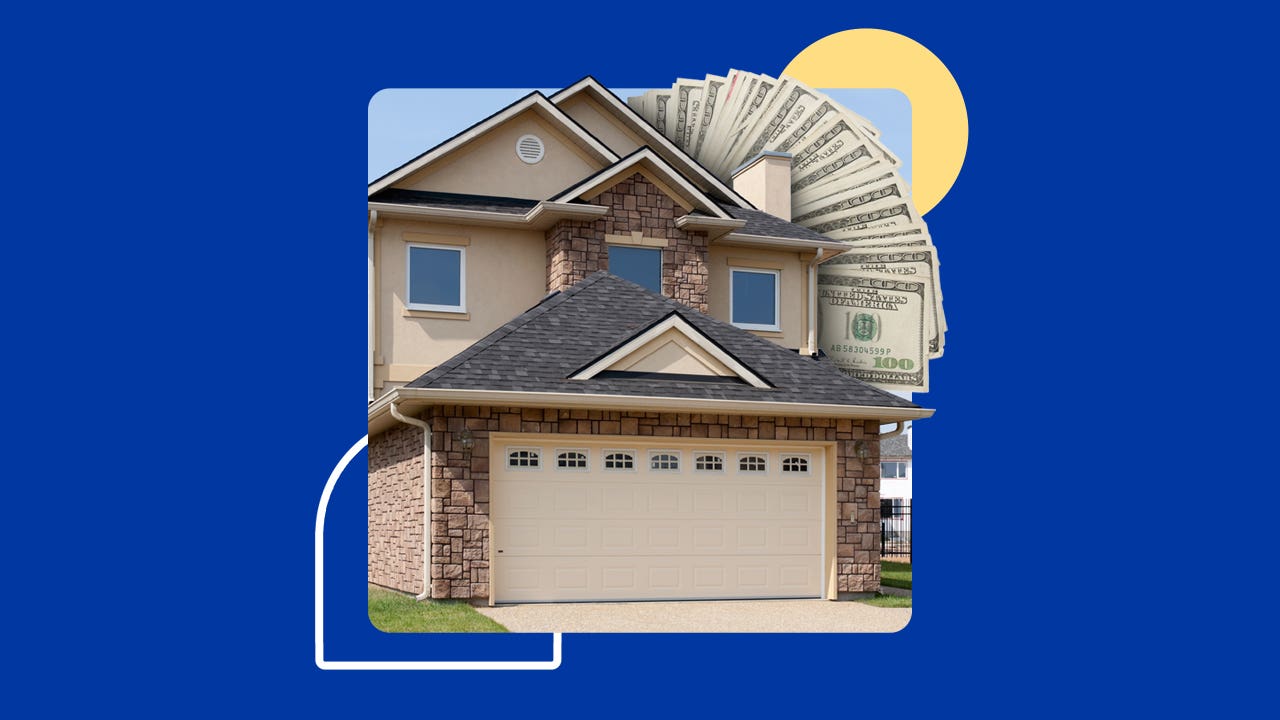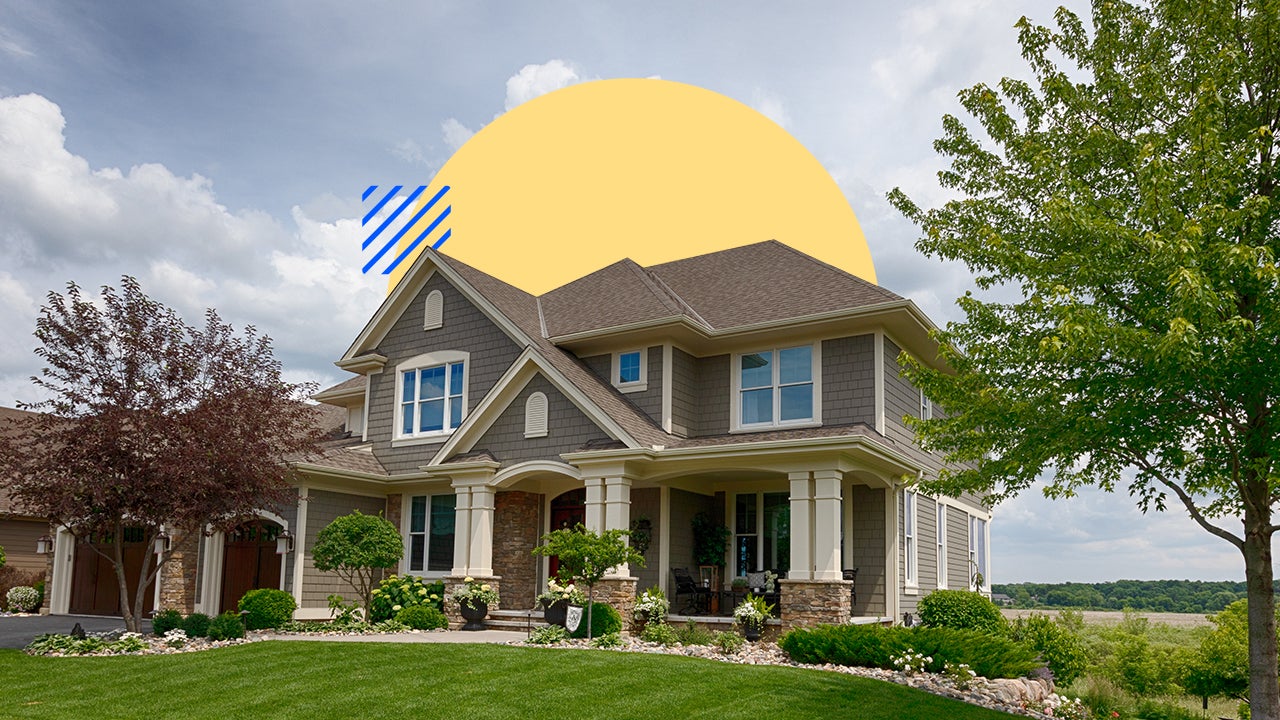What income do I need to afford a $400K house?

Got your eye on a $400,000 home in your area? That’s a good bit above the national median home price of $363,000, according to the National Association of Realtors. The income needed to comfortably afford such a purchase will depend on a variety of factors, including, crucially, the interest rate of your mortgage.
Bankrate’s home-affordability calculator can help you figure out what salary is needed to afford a $400,000 home. Assuming a 30-year fixed conventional mortgage and a 20 percent down payment of $80,000, with a high 6.88 percent interest rate, borrowers must earn a minimum of $105,864 each year to afford a home priced at $400,000. Based on these numbers, your monthly mortgage payment would be around $2,470.
Of course, these numbers can change drastically depending on your specific financial circumstances, including your homeowners insurance premium and local property taxes. If you lock in a lower rate, the monthly payments will be less; if you put down less than a 20 percent down payment, they will be more. Some homes may come with additional costs as well, such homeowners association fees or pool maintenance. Here’s everything you’ll want to consider to determine how much income is needed for a $400,000 home.
Income to afford a $400,000 house
When figuring out how much you need to make to buy a $400K house, the 28/36 rule, a common real estate rule of thumb, is a good place to start. This guideline advises that no more than 28 percent of your total income should be spent on your monthly housing costs, and that no more than 36 percent should be spent on monthly debt payments.
Let’s see how the 28/36 rule checks out using the income determined above of $105,864 per year. Dividing by 12, that breaks down to $8,822 per month, and 28 percent of $8,822 is about $2,470. So that would be the limit of what you should spend on housing — meaning $105,864 is the minimum income you’d need to comfortably afford that $400,000 home purchase.
But don’t forget to consider the 36 part of the equation as well — what other debts do you have, like car payments, credit cards or student loans? Factor in the costs of homeownership too, including taxes and regular maintenance and upkeep, when determining a comfortable monthly payment. You don’t want to stretch yourself so thin with your house payments that you can’t afford other essentials.
In addition, keep in mind that a $400,000 home can look vastly different from one location to another. In some markets $400K may get you a modest cottage, if that, while in others it can buy a veritable mansion. Popular markets where the median price for a single-family home hovers close to the $400K mark, according to Redfin data from February 2023, include Atlanta, GA ($386,500); Charlotte, NC ($375,000); and Dallas, TX ($417,800). In Phoenix, AZ, it’s $400K on the dot.
What factors determine how much you can afford?
There is much more to home affordability than simply a property’s price tag. Other factors to consider include:
- Down payment: The larger your down payment on a house, the less you need to borrow — and so, the smaller your monthly mortgage payments will be.
- Loan-to-value ratio: Your loan-to-value ratio, or LTV, represents how much of the home’s total value you are borrowing. This is closely related to how much down payment you put down upfront.
- Debt-to-income ratio: DTI is calculated by considering your gross monthly income against your debt obligations each month. The higher your DTI, the more of a risk lenders will likely consider you. Based on the income of $105,864 listed above, your gross monthly income would equal $8,822.
- Credit score: When it comes to buying a house, credit score counts for a lot. The higher your score, the better mortgage rates you are likely to qualify for. Different types of loans require different credit scores to qualify as well.
- Type of financing: It pays to know your mortgage options. Some mortgage products are specifically designed to accommodate first-time buyers, military members and veterans and others. In addition, many state and local governments offer down payment assistance and other programs you might be eligible for, so do your research before committing.
Stay the course until you actually close
Don’t stop monitoring the factors listed above once you go into contract. It can take weeks or even months before your purchase closes, and you don’t want anything to change your finances until the deal is completely done. For example, don’t apply for new credit cards or make purchases that require financing, like a car, because those can affect your credit score. And if possible, don’t switch jobs or make any big life changes, such as getting married, either.
For most buyers, working with a knowledgeable local real estate agent is invaluable. Interview a few people to find a good fit for you. An agent will be able to guide you through the entire homebuying process with professional expertise.
FAQs
-
A variety of factors impact how much you can afford to spend on a house. The primary factor is your income — a $400,000 purchase typically requires a salary of at least $106,000. Other important considerations include your credit score, the size of your down payment and the details of your mortgage loan, including the interest rate.
-
The list price of your home is obviously the largest cost to consider, but also be mindful of the cost of living in the area where you’re looking and the cost of commuting to your work location. And keep in mind that the size and level of luxury at the $400,000 price point can vary greatly depending on your location.
-
To afford a home purchase at this price, you will likely need an income of at least $106,000 per year (see calculations above). But many factors can affect this number, including your mortgage interest rate — the same purchase at a rate of 6 percent can have much lower monthly payments than it would at 7 percent, for example. A higher credit score can make you eligible for better rates. Discuss your budget with your real estate agent openly, and get preapproved for a mortgage so that you have a good idea of how much a lender will be willing to loan you for the purchase.
Why we ask for feedback Your feedback helps us improve our content and services. It takes less than a minute to complete.
Your responses are anonymous and will only be used for improving our website.
You may also like

How much house can I afford with a $180K salary?

How much should I spend on a house?

What income do I need to afford a $750K house?



